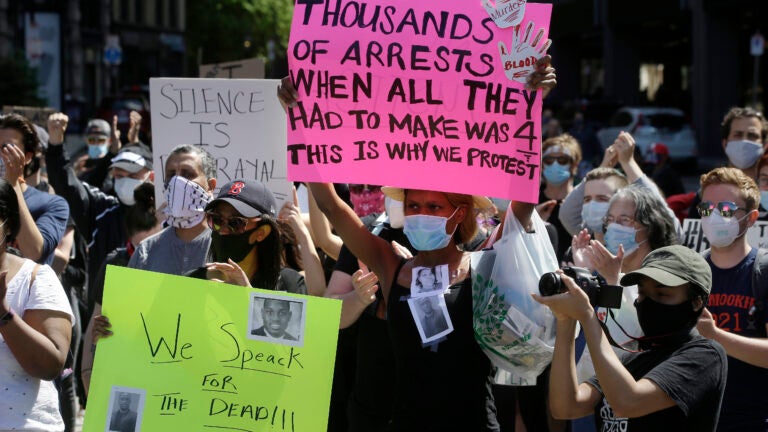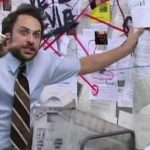Local News
“The judge found that if the jury believes that, that would be an unconstitutional policy of the City of Boston.”

A federal judge ruled that a civil rights lawsuit filed by a group of protesters alleging that three Boston police officers used excessive force against them while clearing a 2020 protest can move forward, potentially to a trial.
Three Boston police officers — Michael Burke, Edward Nolan, and Michael McManus —are accused of using excessive force against each of the four protesters during a Black Lives Matter protest that eventually turned into a riot, according to court records.
“The judge found that a jury could find the incident commander authorized police officers to use force indiscriminately on all who remain present after 9:15,” said Howard Friedman, the protesters’ lawyer. “At 9:15, there were many peaceful people who came from the suburbs who were trying to leave but couldn’t figure out how to do so.”
Jasmine Huffman, Justin Ackers, Caitlyn Hall, and Benjamin Chambers-Maher attended the demonstration in the Boston Common on May 31, 2020. The protest was peaceful, but around 9 p.m., protesters threw items at police and a cruiser was set on fire about an hour later, according to a description of the protest in the decision.
Burke allegedly struck Ackers and Huffman with his wooden riot baton, and Hall was struck in the face by Nolan, according to the judge’s decision. McManus used pepper spray on Chambers-Maher, and Ackers was also pepper sprayed.
Judge Allison Burroughs dismissed Burke’s motion for summary judgement, which would have avoided a trial; the other officers did not file summary judgement motions, according to the federal court docket.
The City of Boston is also named as a defendant. The judge granted the city’s motion for summary judgement in part, agreeing that the plaintiff’s claims “are based on the city’s written policies, failure to supervise, and failure to train.” However, part of the city’s motion was denied because “they are based on the acts of the City policymakers.”
The policymakers included BPD Superintendent William Ridge, who “defendants concede had broad authority over the BPD’s use of force during the protest,” Burroughs wrote.
Ridge said that each protester that remained was considered part of the demonstration “that had gotten out of hand and turned into rioting,” according to his testimony, and another officer said he authorized the use of force on anyone still present on the Common.
“A jury could find that the Officer Defendants used force against each of the Plaintiffs that evening,” Burroughs wrote. “Viewing the record in the light most favorable to Plaintiffs, a jury could conclude that Ridge authorized police officers to use force indiscriminately on all who remained on the street after 9:15 pm.”
Many of the protesters were stuck in the Common when the protest became more violent, Friedman told Boston.com.
“The judge found that if the jury believes that, that would be an unconstitutional policy of the City of Boston,” Friedman said, “and in fact, there’s evidence that even civilians would ask, ‘How do I leave?’ And the officers would say, ‘I don’t know.’”
Burroughs denied the city’s attempt to move the trial into four separate trials for each of the plaintiffs, but left room to review that decision. The city and the police department both did not return a request for comment.
The case will move forward to a status conference later this month, according to court dockets. Friedman said the case potentially could be settled, but it has not yet been discussed.
Sign up for the Today newsletter
Get everything you need to know to start your day, delivered right to your inbox every morning.




